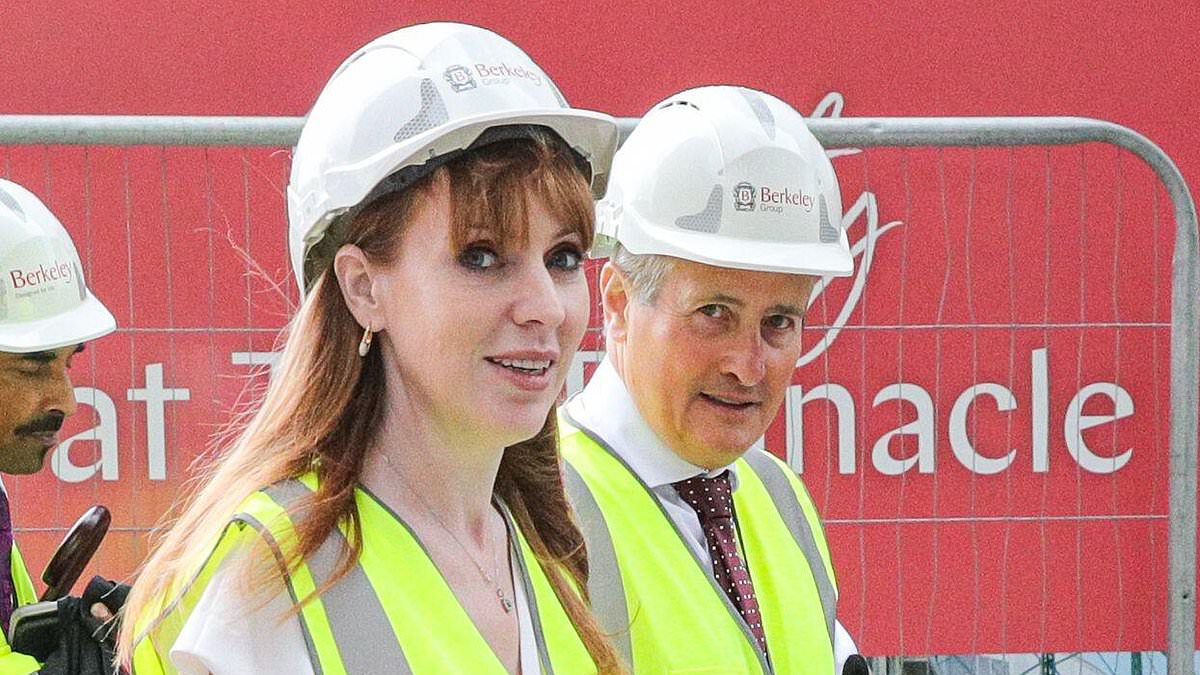Angela Rayner is is expected to hail the first stage of a ‘council housing revolution’ as she is set to be handed almost £1biillion in next week’s budget.
The deputy prime minister is planning to double council house building after winning a boost to fund tens of thousands of extra homes.
Ms Rayner argues that council housing is vital to hitting Labour’s target of building 1.5 million homes and the money is seen as a down-payment on far bigger sums in next spring’s spending review.
She believes the homes will help to avert a projected £9 billion rise in the benefit bill and cut the cost of temporary homeless accommodation that is bankrupting councils.
The budget will also see the announcement of Rayner’s restriction of right-to-buy rules, meaning existing council tenants will also have to pay tens of thousands of pounds more to own their homes.
This will be done to restrict council house sales, which Ms Rayner believes is vital to stem the loss of social housing.
Although about 11,000 council or housing association homes are built in England each year, 23,000 are demolished or converted, meaning a net loss of more than 11,000.
Ms Rayner is pledging to build enough council homes to stop this loss by April 2026 and Chancellor Rachel Reeves has agreed a top-up to her budget of between £500 million and £1 billion.
The money will go into the cash-strapped Affordable Homes Programme, which Rayner feared could see construction on key projects stopped if not topped up.
She is then expected to press Ms Reeves for billions of pounds at next spring’s spending review – at which a multi-year affordable housing programme will be set out.
This programme will hope to see a return to building rates closer to those achieved under Gordon Brown, when more than 30,000 social homes were built each year.
Housing campaign groups have warned that 90,000 new social homes a year are needed, but many believe that level is unrealistic.
A senior government source said: ‘Angela’s ambitions on social and council housing have the full backing of the prime minister and chancellor, and that will become even clearer in the weeks ahead. They are joined at the hip when it comes to getting Britain building.’
Councils have been spending more and more on temporary accommodation to combat the record levels of homelessness.
This is costing taxpayers £1.9 billion a year, according to analysis by the Centre for Homelessness Impact, with costs per household above £100,000 a year for some councils.
For some local authorities, these costs are pushing their finances over the edge, with Crawley, Hastings and Dartford councils were spending more than half their income from council tax on temporary accommodation.
Hannah Dalton of the District Councils Network said: ‘The costs of homelessness were ‘straining our budgets to breaking point. Residents will be shocked to learn that the equivalent of as much as half of their council tax is being spent on temporary accommodation rather than the local services they expect.’
Britain also now spends £30 billion a year on housing benefits, up 50 per cent since Labour was last in power, and this is projected to reach £39 billion by the end of the decade.
Polly Neate, chief executive of the housing charity Shelter, said: ‘It’s absurd that we keep sinking billions into grim homeless accommodation every year and lining the pockets of private landlords with housing benefit, instead of investing in solutions that would give families a safe and secure home.’
A Government source added: ‘The costs of housing benefit are rising unbelievably fast and it’s going to rise by a third if we don’t do anything. That’s what happens if you don’t invest in social housing.’
Right-to-buy discounts that offer council tenants up to 70 per cent off purchase prices are expected to be reduced by Ms Rayner.
These are currently capped at £102,400, or £136,400 in London, but discounts are now expected to be set closer to about 25 per cent.
Ms Rayner is likely to restrict the right to buy to people who have lived in their home for ten years, up from three, and she is considering scrapping it for newly-built homes.
